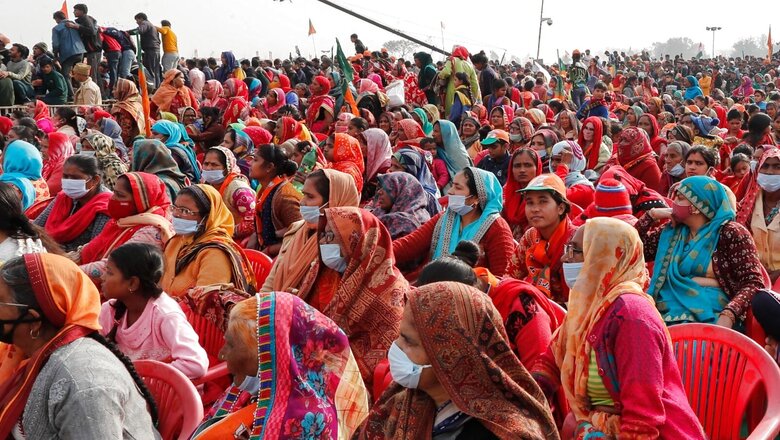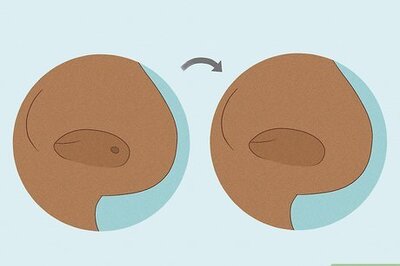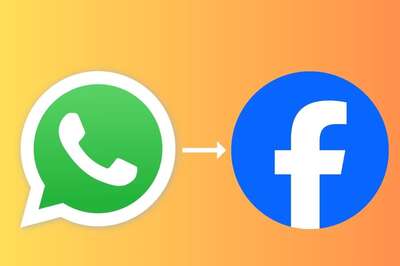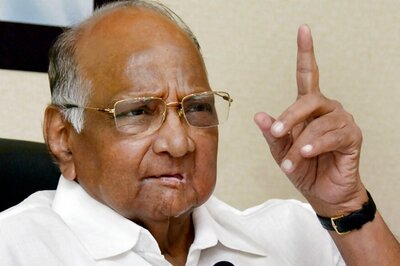
views
Who will form the next government? As time goes by, tastes evolve. Things go in and out of fashion. People move on to new interests. But some things don’t change. Curiosity to know which party will win the elections, is one of them.
Who will head the government? Will the winner get an absolute majority? Which party will win by how much? Will there be a coalition government? If so, which parties can be expected to come together? These have always remained questions of wide interest.
As a teenager, come poll season, I was excited too. I would actively read, watch, and follow what’s happening. And see elders around me engage in an animated discussion. Sometimes, the atmosphere would get heated up, if those holding adversarial positions were unwilling to accept the other view. At other times, it would just be friendly banter.
From the poorest to the richest, from the news savvy to the politically ignorant, this topic has forever remained a dominant discussion point during national and provincial elections. In offices, canteens, pan and tea stalls, public transport, community halls etc. In election season, everything else takes a back seat. Even weddings and social occasions are not spared from discussions around political parties. As a result, opinion and exit polls evoke huge interest among people, especially in regions and states where elections are being held.
Come Polls, Everyone Wins
The media loves the polls. They see it as an opportunity to garner more viewers and hope the audience likes their offering and sticks to the brand even after the new government is sworn-in. From the time the Election Commission announces the date for the polls till government formation, the weeks in between are the ones that matter most. This is also the most-watched season for news broadcasters. New viewers sample news and existing viewers spend more time than usual watching news. But maximum viewership is expected on the day of the election result and when broadcasters telecast the results of their opinion and exit polls.
Advertisers smell this occasion as an opportunity to be noticed, so they hike their spends significantly and engage with media planners to help them make buying decisions.
A lot of midnight oil is burnt around this time.
News organisations put their best foot forward to accumulate both audience and revenue. Pollsters and agencies which specialise in conducting such polls are wooed by news media. The ones who have a better track record of calling it right are the most sought-after. No one gets it right each time. It is your strike rate which matters. The demand-supply gap for psephologists raises their brand value manifold. After all, they help make better sense of the numbers.
Why is Janta Gripped by Poll Fever?
Why does the poll fever capture public imagination? There are many reasons for it.
First and foremost, it is fuelled by the impact of polls on people. How will the result influence their lives? Each party comes with its own ideology. And it is not just about politics. It has a big effect on the social fabric, stock markets and economy. What position the elected government takes on issues of political and economic importance will have consequences on the populace. The state of mind, security, business interests of the population all stand to be influenced by the party which governs the state.
Second, it is linked to the personal likes and dislikes. How will the party of my choice fare? What are the chances of the party I intensely dislike coming to power?
Next is the curiosity factor. It is the want to know, before the actual result. Information is power. Power helps you take decisions. Or just show off. You feel good to know.
For Indians, it is also a cultural thing. We get excited by politics even though we may not take our politicians seriously. Our lives may not really change much after the election result, but we still get a kick thinking and talking politics.
For some, it is to check if they got it right. It allows them to say, ‘I told you so’. A small section may well have placed bets on the outcome. So, there’s money at stake for them.
For others, it is a big talking point. A conversation starter. An opportunity to discuss and debate. To take positions. To engage in banter.
The Inside View
Once I joined the news profession, I felt the pulse of the people when I visited any social gathering closer to the polls. If the hosts or the gathering knew my occupation, I would face a volley of questions. I was expected to have all the answers. I never did. I would plead ignorance which would be seen as reluctance to part with the desired information.
My standard response — I wish I knew.
The next question inevitably is ‘Don’t you have your own polls?’
‘Even when we do, the poll results come barely a few hours before the poll show is telecast,’ I would clarify.
‘But you would still know, you have so many journalists working with you.’
‘Journalists are not soothsayers,’ I would say in my defence. ‘They may have a sense of the popular mood if they have travelled extensively in the region going to polls and spoken to a wide cross-section of citizens. But there’s no way anyone can say for sure.’
I would look around and get the feeling that my audience is not convinced.
‘Even pollsters cannot expect to get it bang on. There’s always a margin of error which they disclose upfront. There’s a science to it but it is not exact. There are many variables in play.’ At this point, I would make an excuse for leaving and look for the host to bail me out.
Seven general elections and over a hundred assembly elections later, I still face the same questions pre-polls each time when I step out. The curiosity and excitement have not ebbed at all.
It is not just the people; it is a very big deal for the netas too. They wait with bated breath to see what media organisations project. Now, many political parties hold their own polls. They use it to gauge the public mood, know how their candidates are perceived and what are the key issues that concern the electorate. These findings help the parties decide which candidates to field or drop. Some parties even commission more than one poll. There’s much at stake. Each party wants to get it right. Nothing is left to chance. It is serious business, after all.
A lot has changed in the way news is served from the time I joined the profession. But the audience fascination for poll results has remained the same. I still sense the same pulse for polls everywhere, each time.
Read all the Latest Opinions here



















Comments
0 comment